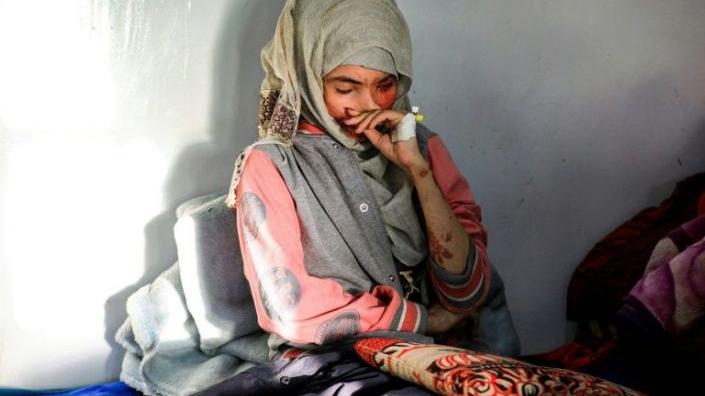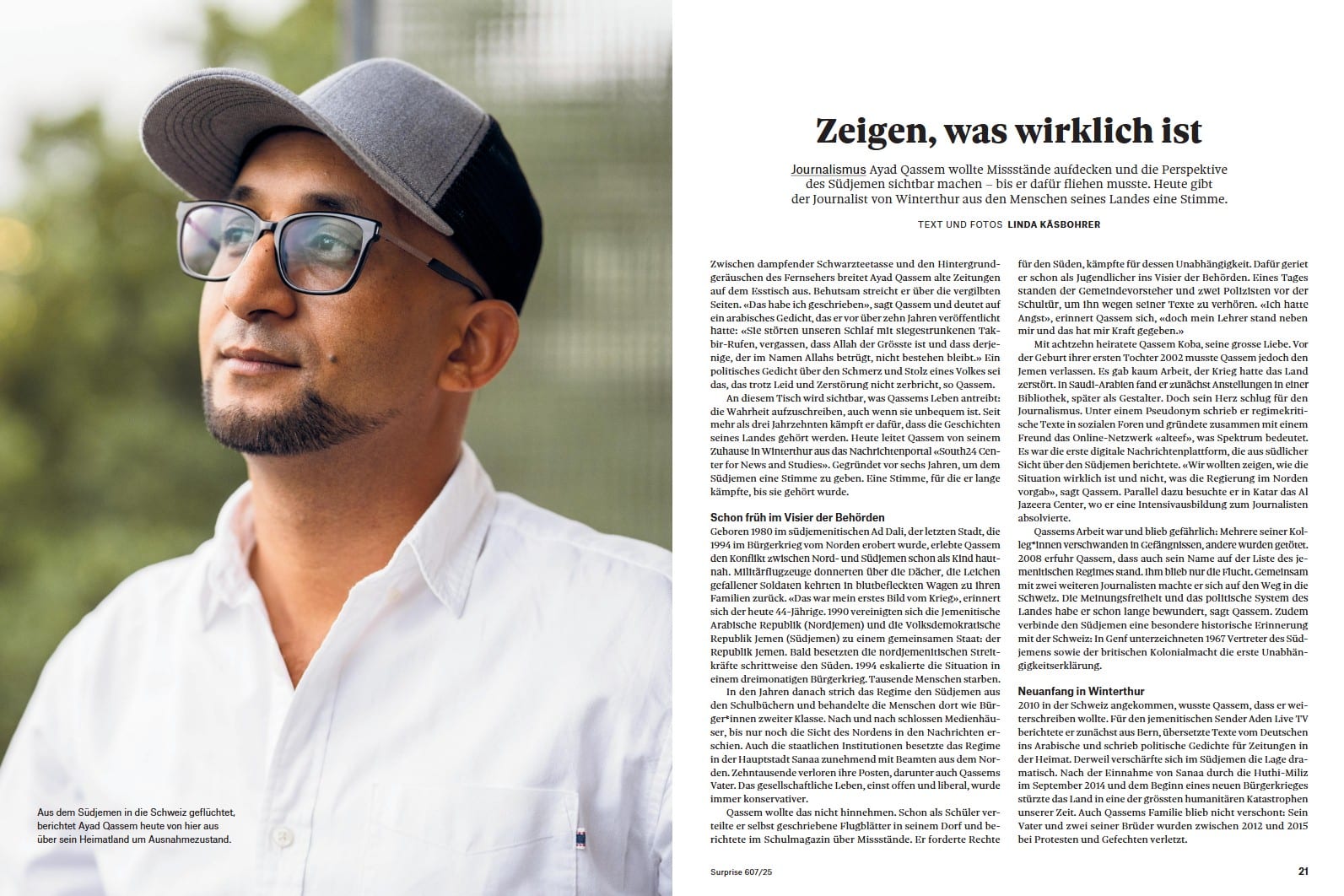
آخر تحديث في: 08-12-2021 الساعة 9 مساءً بتوقيت عدن
Reem Al-Fadhli (South24)
Domestic violence against Yemeni women and girls is one of the biggest violations they are exposed to. Over the years, Yemen witnessed a number of crimes that ended with women losing their lives or causing permanent disability to some of them. What happened to “Al-Anoud” (1), Marwa Al-Bayti (2) and many others is only the tip of the iceberg, a sufficient example of the violations scale that are still faced with great shortcomings by the concerned authorities and institutions.
With the continuation of the current situation that the country is going through, these attacks have exacerbated and it has become difficult to count them, oppose them, or move seriously to try to enact laws and legislation prohibiting them.
Shortsighted view on women
"The feeling of wanting to scream and reject all this injustice that I suffer at the hands of my three brothers has ceased, although I am the only girl in the family and an orphan of the father, but they have never felt that I need them as a bond to compensate me for the great loss." Shaimaa*, 15 year old girl from Aden tells "South24" her painful story.
Shaima adds, as she searches for words that summarize her suffering: "Void and unjustly."
The child Shaima explains to "South24": "I work like a maid day and night in our house, I fulfill all their requests and obey all their orders, and despite that I am only met with insult and beating."
"It didn't stop there, but I've been denied school since I was nine for no reason."
Shaima says that she was abused by her brothers when she asked them about the reason, adding, "they told me that home is the right place for a woman until her future husband comes".
Shaima and many Yemeni girls live in a severe case of family oppression, as a result of many circumstances created by some social traditions, extremist ideas and the war in the country.
With the repercussions of the war crisis, which has caused the tragically spread of poverty among the majority of the population, the rate of child marriage has doubled, especially in the Northern regions of Yemen, where a statistic stated in a UNICEF report in 2017, that more than two-thirds of girls in Yemen are married before the age of 18. , compared to 50 percent before the outbreak of the conflict. (3)
Domestic violence is placed side by side with the dilemma of child marriage, as the majority of cases have proven that violence is significantly linked to young girls married at an early age, with the lack of deterrent controls, which made it easy to create excuses and justifications for such crimes. (4)
The girl "Al-Anoud" who was burned with "acid" by her husband, February 2021 (GETTY IMAGES)
There is no explicit provision in Yemeni law criminalizing perpetrators of domestic violence against women and it does not stop there. In Article No. 42 of Penal Code No. 12 of 1994, the article states that “the blood money of a murdered woman is half that of a murdered man.”
The previous article completely contradicts Article 41 of the “Yemeni Constitution,” which states that “all citizens are equal in public rights and duties.”
Solutions for change and failed governments
Over the past years, some lawyers and human rights activists have worked to raise the bar for a radical and actual change in the laws and articles of the constitution.
On this, lawyer and human rights activist Afra Al-Hariri told "South24" that before 2011, a national committee formulated “amendments to texts that reinforce discrimination and violence against women as the body that makes or sets public policies towards women’s issues, as do civil society organizations concerned with women or human rights…".
She continued, "However, the war disrupted the work of the National Committee, which began to recover from Aden late this year."
In her speech, Hariri indicated that "it is not possible to make a difference in changing these legislation at the present time," and attributed this to "the split between the House of Representatives, which represents the legislative authority, between the Yemeni government and the Houthis, both of whom are inoperative."
In 2014, a draft law on combating violence against women and girls was prepared by the Independent Women Network (Fawz), but it was not submitted to the relevant legislative bodies, according to Hariri.
Lawyer Hariri said that "the project was discussed in one of the women's events of the Group of Nine, last year, during the 16 Days of Combating Violence against Women activities, but no progress was made on it."
A protest sit by human rights activists in Hadramout Governorate to demand “retribution” from Marwa al-Bayti’s husband, who burned her using gasoline in December 2020 (Al-Ayyam newspaper)
Hariri believes that the draft project "needs to be reformulated, and its name also needs to be changed so that it accommodates many issues, facts and variables, and includes situations of violence against women in the period of war and peace".
Regarding the work of civil society organizations, Hariri criticized "the scattered efforts that cannot be fruitful or known to the people and the authority to bring about real change to counter violence against women in the current situation."
Heartbreaking statistics and frightened women
A report in 2017, published by the United Nations Population Fund, said that violence against women has increased by 63% since the beginning of the conflict in Yemen, and that 2.6 million women are at risk of gender-based violence, and that the Covid-19 pandemic has exacerbated the problem and increased the number of cases greatly violence. (5)
To the east of Aden, Jawhara*, a 35-year-old from Abyan governorate in South Yemen, is a mother of four. Jawhara has been severely abused by her "unemployed" husband since 2018, as she explained over the phone to "South24".
Jawhara says, "I have resorted to my family several times, and each time they urge me to be patient, endurance and contain the problem, and despite the many bruises I go to them asking them to do justice to me, they give me the same advice..".
She continues, "I tried to convince myself a lot that my husband does this because of the circumstances he is going through, but it was not like that at all."
Jawhara offered him help, and expressed her willingness to work, as she holds a university degree, “but this offer turned into a problem that fell over my head alone, so I received a number of insults and severe beatings".
During her speech, Jawhara confirmed that despite her friends' insistence on her to turn to an organization concerned with the protection of battered women, "it is easier for her to remain in the hands of her abusive husband than to surrender herself to parties that she knows nothing about," as she put it.
In response to Jawhara's doubts, we contacted the director of the Yemen Women's Union branch in Abyan governorate, Adela Al-Khader, and she indicated that "the organization is working hard to educate women in the governorate to overcome all misconceptions about organizations, as well as to inform women of their rights, and to deliver our assistance to the largest number of people."
Although the organization does not receive support from the official authorities, as Al-Khidr says, the organization carries out its activities on a voluntary basis by a number of young people.
The story did not end here about the girl Shaima or Jawhara.
There are still hundreds of women who have not yet dared to tell their stories and defend their human rights, amid questions "about the moment when they will be redressed from that suffering."
Journalist and editor at South24 Center for News and Studies
Photo: The young girl "Al-Anoud" who was burned with "acid" by her husband, February 2021 (GETTY IMAGES)
*(Note: The names of the two victims who spoke to “South24” are pseudonyms, for their safety)

قبل 3 أشهر

قبل 3 أشهر